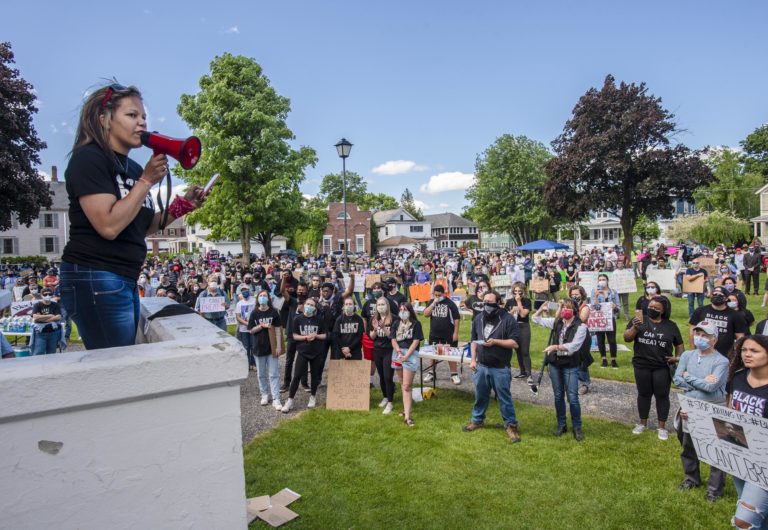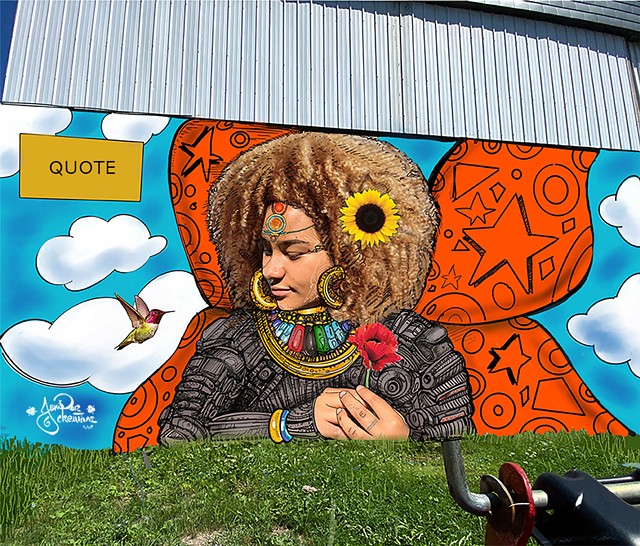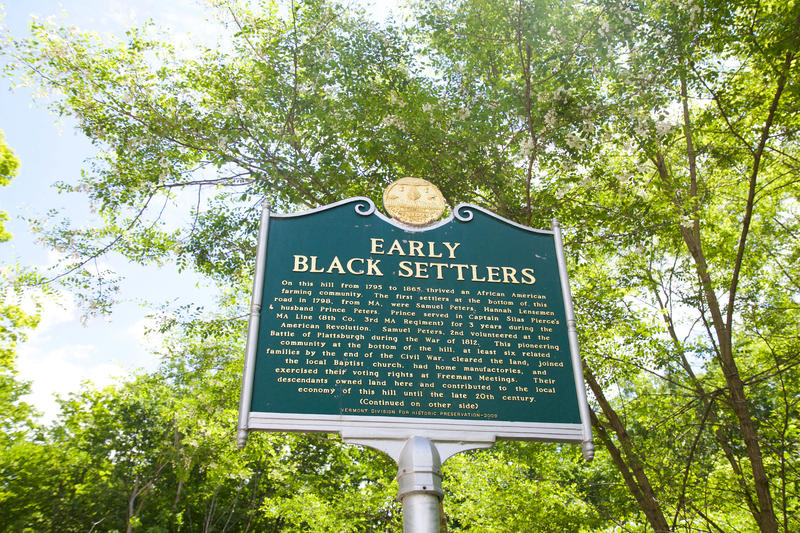“I grew up here, in the area, and I never really felt entirely welcome, even though this is my home. There were just so many messages that I got, that I didn’t belong.” -Tabitha Moore, The Rutland Area NAACP
Tabitha Moore leads The Rutland Area NAACP and is an outspoken advocate for racial justice. In early September, Moore spoke to VTDigger for a Q & A where she shared how her heightened visibility has made the home -that never fully welcomed her- even more unwelcoming. “Vermont is not white by mistake. It’s not just a happenstance.” This important read reminds us the critical need for housing opportunities to be not just inclusive, but host a culture that supports inclusion.

VTDigger’s article, Q&A with Tabitha Moore: ‘I am not OK’, features a September Q&A with Moore about her recent experiences as one of Vermont’s most prominent Black leaders in a moment of historical social unrest.
Representation is critical to creating the culture of belonging foundational to thriving communities. Unfortunately, some of Vermont is still resistant to representing black and brown people in their community public spaces.
“The only way to deal with an unfree world is to become so absolutely free that your very existence is an act of rebellion.”
Quote by Albert Camus, to be paired with the planned portrait by Vermont artist team Kasso and Herrera as part of a public arts installation
Vermont Artists, Will Kasso Condry and Jennifer Herrera Condry were in line to continue the mural art installations commissioned by Soda Plant tenants, SoapBox Gallery and CO Cellars. They planned a colorful work based on the portrait of their daughter in an afrofuturist style with this quote by Albert Camus, “The only way to deal with an unfree world is to become so absolutely free that your very existence is an act of rebellion.” While the piece was commissioned by the Soda Plant businesses and visible to drivers on Pine Street, the wall itself is the backside of Kerry’s Kwick Stop and relied on the continued support from owner Carrie Rockwood. After reviewing the mock-up up, Rockwood said no. “I do not like the photo or the phrase. I would like something representative of our community/Burlington.”

It is no secret that Vermont is a very white state, with almost 93% people identifying as “white alone” in the recent census data. Still, Burlington’s communities are more diverse, with almost 17% of people self identifying as BiPOC (Black or Indigenous People of Color), and as Moore said, “Vermont is not just white by happenstance.” Rockwood’s assertion that images of BiPOC people do not represent the community is part of a long, systemic history of white people controlling the narrative of who belongs. An important part of addressing systemic racism is having access to a balanced, honest history of how our communities are created.

Photo by ELODIE REED / VPR
This Vermont Public Radio podcast, Brave Little State, takes a deeper dive at the history of Vergennes, home to one of Vermont’s 19th century Black communities. In 1790, 7% of Vergennes’ population was Black, however the most recent census show the civilian Black population is at 0.2%. Other towns listed as having sizable historical Black populations include Bennington, Woodstock, Windsor and Ferrisburgh, along with cities like St. Albans and Rutland. This critical look at Vermont’s 19th century Black communities helps listeners understand the the conditions which shrunk diversity in our communities, rather than foster environments for all people to thrive equally.
This Brave Little State deep episode shows, as Tabitha Moore said in her VT Digger article, that “Vermont isn’t white by mistake.” Messages like Carrie Rockwood’s, when she implied that images of Black and Brown people don’t represent our Burlington community, is part of a bigger trend of systemic inequality that our city and state is deeply entrenched in. Representation matters, and is one small but important element to ensure we all live in an equitable, thriving community.